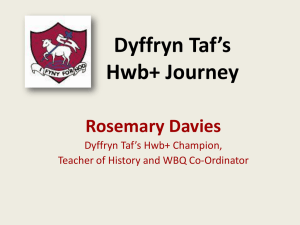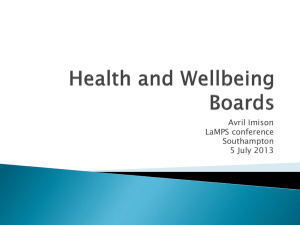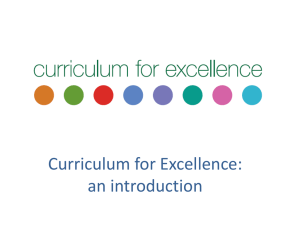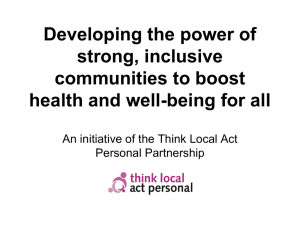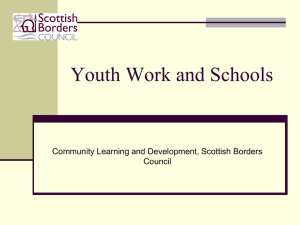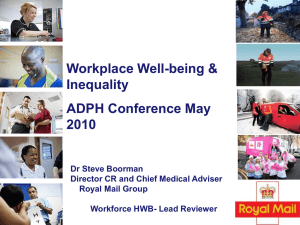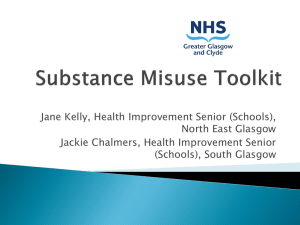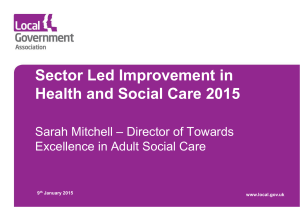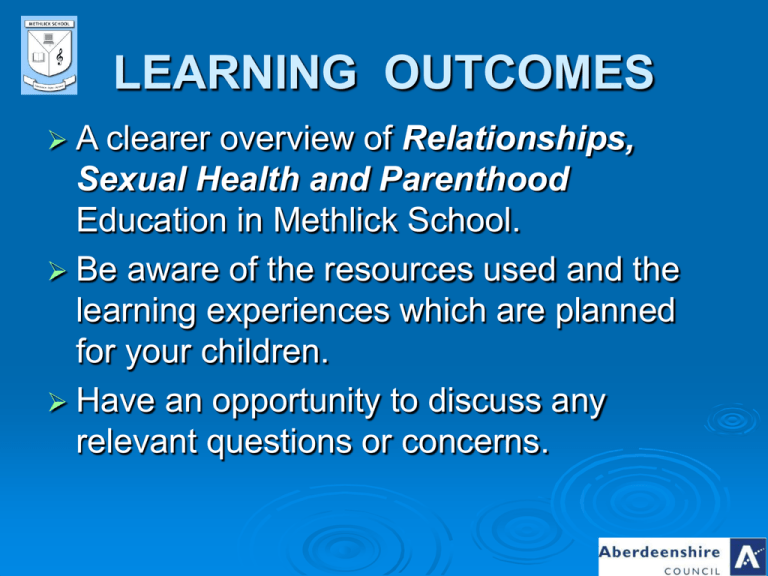
LEARNING OUTCOMES
A clearer
overview of Relationships,
Sexual Health and Parenthood
Education in Methlick School.
Be aware of the resources used and the
learning experiences which are planned
for your children.
Have an opportunity to discuss any
relevant questions or concerns.
Why do we teach Relationships, Sexual
Health and Parenthood Education?
Sex education can be defined as a lifelong process.
Children
and young people will
acquire knowledge and skills.
They need to develop their beliefs, attitudes
and values about their sexuality and
relationships within a moral and ethical
framework.
Part of the Scottish national curriculum.
What will our Relationships, Sexual Health and
Parenthood education cover?
In
Scotland, all schools must take a whole
school approach in order to deliver the key
principles already mentioned.
Throughout a child’s education the focus
through primary and secondary will be on
the experiences and outcomes set out in
the Curriculum for Excellence: Health
and Well Being.
- Health and Wellbeing The six organisers.
The experiences and outcomes in ~ Curriculum for
Excellence: health and wellbeing ~ reflect a
holistic approach to promoting the health and
wellbeing of all children and young people.
Experiences
The learning experience. This recognises the
quality and nature of the experiences.
Outcomes
An outcome represents what is to be
achieved.
Curriculum for Excellence
Health and Wellbeing
There are 51 related HWB outcomes.
Relationships, Sexual Health and Parenthood outcomes go
from 44a through to 51b covering Early to Fourth level.
At primary school, we usually refer to all outcomes from early
to second but for some children, they will extend into third
level.
In order to ensure that Relationships, sexual health and
parenthood education is not seen as a ‘stand alone’ topic
but an integrated part of the curriculum, it may be covered
in other areas such as; literacy, bullying, growth and
development, family roles, circle time, maths, ICT, history
and in the wider PSD programme.
Relationships, sexual health and parenthood Experiences and Outcomes.
Early
(to end of P1)
First
(P 2, 3, 4)
Second
(P 5, 6, 7)
I am aware of how friendships are formed and
that likes, dislikes, special qualities and needs
can influence relationships.
HWB 0-44a / HWB 1-44a
I understand positive things about friendships
and relationships but when something worries
or upsets me I know who I should talk to.
HWB 0-44b / HWB 1-44b
I understand that a wide range of
different kinds of friendships and
relationships exist.
HWB 2-44a
I am aware that positive friendships
and relationships can promote health
and the health and wellbeing of others.
HWB 2-44b
I know that there are people in our lives who
care for and look after us and I am aware that
people may be cared for by parents, carers
or other adults.
HWB 0-45a / HWB 1-45a
I am identifying and practising skills to
manage changing relationships and I
understand the positive impact this can
ahave on my emotional wellbeing.
HWB 2-45a
I am aware of the need to respect personal space and boundaries and can recognise and
respond appropriately to verbal and non-verbal communication.
HWB 0-45b / HWB 1-45b / HWB 2-45b / HWB 3-45b / HWB 4-45b
Text highlighted in green and in italics are outcomes which span all
learning and are the Responsibility of All staff.
Relationships, sexual health and parenthood Experiences and Outcomes.
Early
(to end of P1)
First
(P 2, 3, 4)
Second
(P 5, 6, 7)
I recognise that we have similarities and
I recognise that how my body changes
differences but are all unique.
can affect how I feel about myself and
HWB 0-47a / HWB 1-47a how I may behave.
I am aware of my growing body and I am
HWB 2-47a
learning the correct names for its different parts
and how they work.
HWB 0-47b / HWB 1-47b
I am learning what I can do to look after my
I can describe the physical and
body and who can help me.
emotional changes during puberty,
HWB 0-48a / HWB 1-48a understand why they are taking place
and the importance of personal
hygiene.
HWB 2-48a
I am learning about respect for my body and
what behaviour is right and wrong. I know who I
should talk to if I am worried about this.
HWB 0-49a / HWB 1-49a
I know that all forms of abuse are
wrong and I am developing the skills to
keep myself safe and get help if I need
it.
HWB 2-49a
Relationships, sexual health and parenthood Experiences and Outcomes.
Early
(to end of P1)
First
(P 2, 3, 4)
Second
(P 5, 6, 7)
I am learning about where living things
I am able to describe how human
come from and about how they grow,
life begins and how a baby is born.
develop and are nurtured.
HWB 2-50a
HWB 0-50a / HWB 1-50a
I am able to show an awareness of the
I can describe the role of a
tasks required to look after a baby.
parent/carer and the skills,
HWB 0-51a / HWB 1-51a commitment and qualities the role
requires.
HWB 2-51a
Methlick Primary School Example of an Early level planner (RSH&P)
Methlick Primary School Example of an Early level planner (RSH&P)
Methlick Primary School Example of a First level planner (RSH&P)
Methlick Primary School Example of a First level planner (RSH&P)
Methlick Primary School Example of a First level planner (RSH&P)
Methlick Primary School Example of a Second level planner (RSH&P)
Methlick Primary School Example of a Second level planner (RSH&P)
Methlick Primary School Example of a Second level planner (RSH&P)
How will it be taught?
A variety of teaching methods will be used.
class discussions
group work
role play
homework activities
peer education
support agency input (e.g. health professionals)
DVDs
interactive CD-Roms
Interactive whiteboards.
websites
worksheets
active learning
What resources do we use?
BBC interactive DVD (P1-5) (RSHP)
Channel 4 Living and Growing
(P6 and 7) (RSHP)
ALEC mobile classroom (Substance Misuse)
Various health related resources (Gen HWB)
Medical partners (Gen HWB)
Leaflets available from NHS (Gen HWB)
Current resources (Gen HWB)
How can parents and carers
help with their child/ren’s
Relationship and Sexual Health Education?
Feedback
any comments when consulted.
Take the opportunity to review the school’s
programme and resources.
Encourage your child/ren to speak about
what they are being taught in school using
the correct language.
Support any homework activities.
Express any concerns to Head Teacher or
any other appropriate person in school.
Any
questions?

